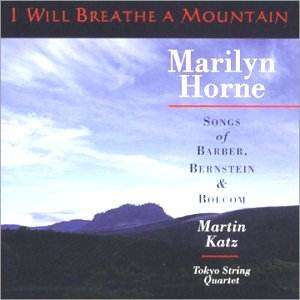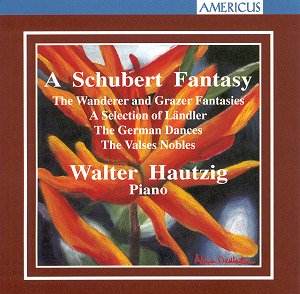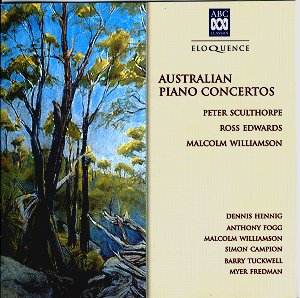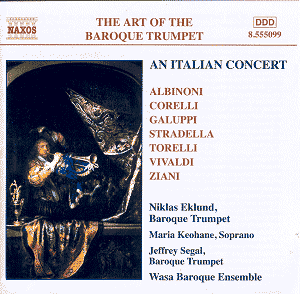 Composer: Samuel Barber, William Bolcom, Leonard Bernstein
Composer: Samuel Barber, William Bolcom, Leonard Bernstein
Works: The Daisies, Op. 2 No. 1; A Nun Takes the Veil, Op. 13 No. 1; Bessie Bobtail, Op. 2 No. 3; The Secrets of the Old, Op. 13 No. 2; Sure on This Shining Night, Op. 13 No. 3; I Hear an Army, Op. 10 No. 3; Dover Beach, Op. 3; Song Cycle: I Will Breathe a Mountain
Performers: Marilyn Horne (mezzo soprano), Martin Katz (piano), The Tokyo String Quartet
Recording: 13 & 16 December 1993 at Grace Rainey Rogers Auditorium, Metropolitan Museum of Art, New York (Barber & Bolcom), 20 February 1994 at Manhattan Center, New York (Dover Beach), 15 November 1996 at Clinton Recording Studios, New York (Bernstein)
Label: RCA
Marilyn Horne’s latest recording presents an intriguing exploration of American song, featuring works by Barber, Bolcom, and Bernstein. Each composer encapsulates a distinctive facet of the American musical landscape, with Barber’s lush lyricism, Bolcom’s eclecticism, and Bernstein’s Broadway-inflected artistry. Horne, renowned for her operatic prowess, brings a theatrical depth to these performances, crafting an engaging narrative through each song cycle. The selection spans a range of emotional and stylistic territory, from Barber’s poignant settings of poetry to Bolcom’s innovative and varied styles, culminating in Bernstein’s evocative songs.
The opening sequences of this disc showcase Barber’s early works, revealing a composer whose melodic gift remains unsurpassed. Horne’s interpretation of “A Nun Takes the Veil” is particularly noteworthy; she navigates the emotional landscape with a rich, warm tone, lending a majestic quality to the text. The facility with which she handles the climactic phrases demonstrates her impeccable technique, while her nuanced phrasing underscores the drama inherent in the narrative. In “Sure on This Shining Night,” often regarded as one of Barber’s quintessential songs, Horne’s rendition is both tender and transcendent, encapsulating the sublime beauty of the text with a shimmering vocal line that lingers in the air.
Turning to Bolcom’s “I Will Breathe a Mountain,” the complexity of the song cycle reflects the composer’s desire to encompass a wide range of styles, as noted in the album’s informative booklet. Horne’s vocal dexterity shines particularly in the more lyrical passages such as “Never more will the Wind” and “The Bustle in a House,” where her ability to convey the subtleties of the texts is profound. The piano writing, executed with finesse by Martin Katz, complements Horne’s voice beautifully, though certain songs present a challenge due to their stylistic shifts. While the eclecticism can at times feel disjointed, Horne’s commanding presence maintains coherence throughout.
Bernstein’s contributions, including “What Lips My Lips Have Kissed,” highlight his signature lyricism and emotional directness. Horne’s interpretation here feels particularly personal, as she imbues each phrase with a sense of longing and nostalgia, drawing the listener into the intimate world of the song. The engineering captures the warmth of her voice and the clarity of the piano, allowing every nuance to resonate. The inclusion of “Dover Beach,” typically performed by baritone, is a bold choice for Horne, yet she delivers an interpretation that is both valid and compelling. The collaboration with the Tokyo String Quartet enriches the texture, providing a lush backdrop against which her voice soars.
This recording not only showcases Horne’s enduring artistry but also serves as a valuable contribution to the repertoire of American art song. Each piece is performed with a level of commitment and artistry that elevates the entire collection. While some may find the variety of styles in Bolcom’s cycle challenging, Horne’s interpretative choices and Katz’s sensitive accompaniment anchor the performances in emotional truth. The sound engineering captures the vibrancy of the performances, ensuring that each musical detail is rendered with clarity.
A rewarding experience for both seasoned listeners and newcomers to these compositions, this disc stands as a testament to Marilyn Horne’s remarkable artistry. The combination of thought-provoking repertoire, stellar performances, and high-quality production culminates in a recording that is both stimulating and memorable.



